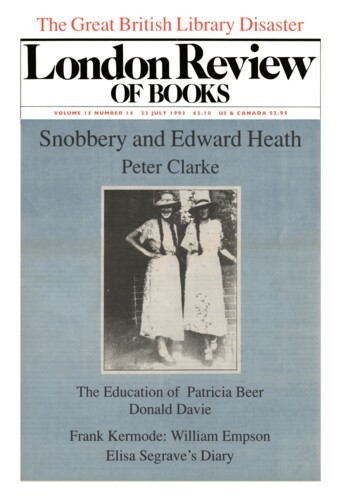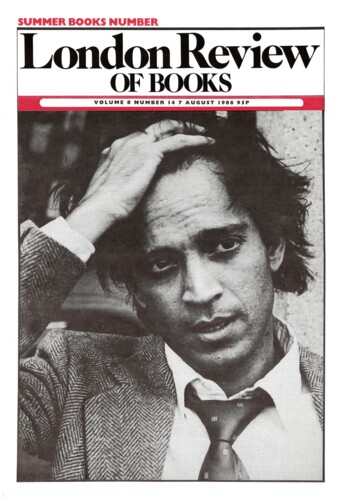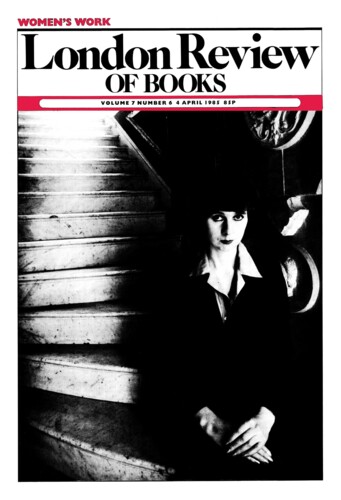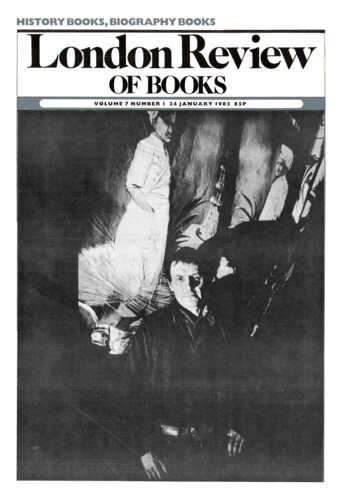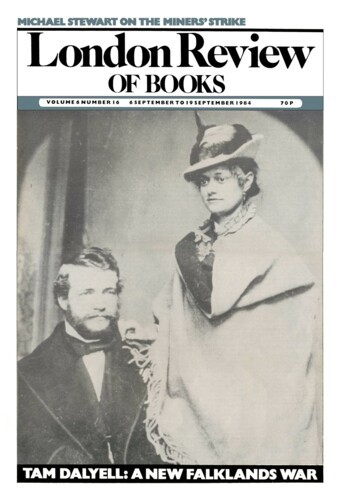E.E. Duncan-Jones
E.E. Duncan-Jones was formerly a reader in English at the University of Birmingham and is the author, as E.E. Phare, of The Poetry of Gerard Manley Hopkins.
Puellilia
7 August 1986
The Case for Geoffrey Hill
4 April 1985
The Wizard of Finella
E.E. Duncan-Jones, 24 January 1985
‘That Enchanter, Manny Forbes … spell-binding … the most saintly spirit … very bizarre’. So I.A. Richards, in 1973, of his old Cambridge colleague, nearly forty years dead. Today, even in Cambridge, the name of Forbes is no longer one to conjure with, except among the dwindling band who remember his performances in Clare as one of the two high points of the undergraduate week, the other being Richards on Practical Criticism. ‘That mysterious figure who gave such wonderful lectures’ is the most one can expect to hear from a younger generation. The house he called Finella and converted with the aid of the Australian architect and poet, Raymond McGrath, from an Early Victorian residence, called The Yews, to what Pevsner considers a milestone in Expressionist decoration, still stands, not quite as it was, for the abundant use of glass would have made it too vulnerable to air attack. For a short time, in 1931, when it housed Epstein’s Genesis, it was said to be the most visited house in England. I am told that nowadays very occasionally somebody asks to look over it. Forbes’s other tangible monument, Clare College 1326-1926 in two uncommonly heavy volumes, has, as Hugh Carey laments, obstinately refused to become a ‘rare book’ or a widely read one, or even the cult of a few. A pity, whether one takes the view of Ian Parsons that it is a literary, historical and bibliographical treasure-house or that of Maynard Keynes, not perhaps incompatible, that its highest quality is ‘a certain magnificent Sillyness, using the word in its ancient sense – admirable and attractive to the reader’.’
Doing my little owl
6 September 1984
Read anywhere with the London Review of Books app, available now from the App Store for Apple devices, Google Play for Android devices and Amazon for your Kindle Fire.
Sign up to our newsletter
For highlights from the latest issue, our archive and the blog, as well as news, events and exclusive promotions.
